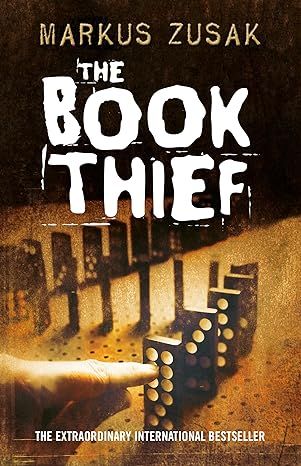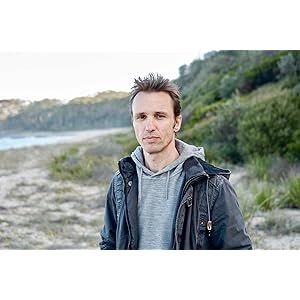The Book Thief
4.6
-
69,794 ratings
#1 NEW YORK TIMES BESTSELLER • ONE OF TIME MAGAZINE’S 100 BEST YA BOOKS OF ALL TIME
The extraordinary, beloved novel about the ability of books to feed the soul even in the darkest of times.
When Death has a story to tell, you listen.
It is 1939. Nazi Germany. The country is holding its breath. Death has never been busier, and will become busier still.
Liesel Meminger is a foster girl living outside of Munich, who scratches out a meager existence for herself by stealing when she encounters something she can’t resist–books. With the help of her accordion-playing foster father, she learns to read and shares her stolen books with her neighbors during bombing raids as well as with the Jewish man hidden in her basement.
In superbly crafted writing that burns with intensity, award-winning author Markus Zusak, author of I Am the Messenger, has given us one of the most enduring stories of our time.
“The kind of book that can be life-changing.” —The New York Times
“Deserves a place on the same shelf with The Diary of a Young Girl by Anne Frank.” —USA Today
DON’T MISS BRIDGE OF CLAY, MARKUS ZUSAK’S FIRST NOVEL SINCE THE BOOK THIEF.
Kindle
$10.99
Available instantly
Audiobook
$0.00
with membership trial
Hardcover
$17.15
Paperback
$7.83
Ships from
Amazon.com
Payment
Secure transaction
ISBN-10
0375842209
ISBN-13
978-0375842207
Print length
608 pages
Language
English
Publisher
Knopf Books for Young Readers
Publication date
September 10, 2007
Dimensions
5.31 x 1.25 x 8.06 inches
Item weight
2.31 pounds
Popular Highlights in this book
I traveled the globe as always, handing souls to the conveyor belt of eternity.
Highlighted by 7,856 Kindle readers
It’s much easier, she realized, to be on the verge of something than to actually be it.
Highlighted by 6,354 Kindle readers
Product details
ASIN :
B000XUBFE2
File size :
8789 KB
Text-to-speech :
Enabled
Screen reader :
Supported
Enhanced typesetting :
Enabled
X-Ray :
Enabled
Word wise :
Enabled
Editorial Reviews
“Brilliant and hugely ambitious…Some will argue that a book so difficult and sad may not be appropriate for teenage readers…Adults will probably like it (this one did), but it’s a great young-adult novel…It’s the kind of book that can be life-changing, because without ever denying the essential amorality and randomness of the natural order, The Book Thief offers us a believable hard-won hope…The hope we see in Liesel is unassailable, the kind you can hang on to in the midst of poverty and war and violence. Young readers need such alternatives to ideological rigidity, and such explorations of how stories matter. And so, come to think of it, do adults.”-New York Times, May 14, 2006
"The Book Thiefis unsettling and unsentimental, yet ultimately poetic. Its grimness and tragedy run through the reader's mind like a black-and-white movie, bereft of the colors of life. Zusak may not have lived under Nazi domination, but The Book Thief deserves a place on the same shelf with The Diary of a Young Girl by Anne Frank and Elie Wiesel's Night. It seems poised to become a classic."
- USA Today
"Zusak doesn’t sugarcoat anything, but he makes his ostensibly gloomy subject bearable the same way Kurt Vonnegut did in Slaughterhouse-Five: with grim, darkly consoling humor.”
- Time Magazine
"Elegant, philosophical and moving...Beautiful and important."
- Kirkus Reviews, Starred "This hefty volume is an achievement...a challenging book in both length and subject..."
- Publisher's Weekly, Starred
"One of the most highly anticipated young-adult books in years."
- The Wall Street Journal
"Exquisitely written and memorably populated, Zusak's poignant tribute to words, survival, and their curiously inevitable entwinement is a tour de force to be not just read but inhabited."
- The Horn Book Magazine, Starred
"An extraordinary narrative."
- School Library Journal, Starred
"The Book Thief will be appreciated for Mr. Zusak's audacity, also on display in his earlier I Am the Messenger. It will be widely read and admired because it tells a story in which books become treasures. And because there's no arguing with a sentiment like that."
- New York Times
Sample
PROLOGUE
a mountain range of rubble
in which our narrator introduces:
himself—the colors—and the book thief
DEATH AND CHOCOLATE
First the colors.
Then the humans.
That’s usually how I see things.
Or at least, how I try.
HERE IS A SMALL FACT
You are going to die.
I am in all truthfulness attempting to be cheerful about this whole topic, though most people find themselves hindered in believing me, no matter my protestations. Please, trust me. I most definitely can be cheerful. I can be amiable. Agreeable. Affable. And that’s only the A’s. Just don’t ask me to be nice. Nice has nothing to do with me.
REACTION TO THE
AFOREMENTIONED FACT
Does this worry you?
I urge you—don’t be afraid.
I’m nothing if not fair.
—Of course, an introduction.
A beginning.
Where are my manners?
I could introduce myself properly, but it’s not really necessary. You will know me well enough and soon enough, depending on a diverse range of variables. It suffices to say that at some point in time, I will be standing over you, as genially as possible. Your soul will be in my arms. A color will be perched on my shoulder. I will carry you gently away.
At that moment, you will be lying there (I rarely find people standing up). You will be caked in your own body. There might be a discovery; a scream will dribble down the air. The only sound I’ll hear after that will be my own breathing, and the sound of the smell, of my footsteps.
The question is, what color will everything be at that moment when I come for you? What will the sky be saying?
Personally, I like a chocolate-colored sky. Dark, dark chocolate. People say it suits me. I do, however, try to enjoy every color I see—the whole spectrum. A billion or so flavors, none of them quite the same, and a sky to slowly suck on. It takes the edge off the stress. It helps me relax.
A SMALL THEORY
People observe the colors of a day only at its beginnings and ends, but to me it’s quite clear that a day merges through a multitude of shades and intonations, with each passing moment. A single hour can consist of thousands of different colors. Waxy yellows, cloud-spat blues. Murky darknesses. In my line of work, I make it a point to notice them.
As I’ve been alluding to, my one saving grace is distraction. It keeps me sane. It helps me cope, considering the length of time I’ve been performing this job. The trouble is, who could ever replace me? Who could step in while I take a break in your stock-standard resort-style vacation destination, whether it be tropical or of the ski trip variety? The answer, of course, is nobody, which has prompted me to make a conscious, deliberate decision to make distraction my vacation. Needless to say, I vacation in increments. In colors.
Still, it’s possible that you might be asking, why does he even need a vacation? What does he need distraction from?
Which brings me to my next point.
It’s the leftover humans.
The survivors.
They’re the ones I can’t stand to look at, although on many occasions I still fail. I deliberately seek out the colors to keep my mind off them, but now and then, I witness the ones who are left behind, crumbling among the jigsaw puzzle of realization, despair, and surprise. They have punctured hearts. They have beaten lungs.
Which in turn brings me to the subject I am telling you about tonight, or today, or whatever the hour and color. It’s the story of one of those perpetual survivors—an expert at being left behind.
It’s just a small story really, about, among other things:
• A girl
• Some words
• An accordionist
• Some fanatical Germans
• A Jewish fist fighter
• And quite a lot of thievery
I saw the book thief three times.
Read more
About the authors
Markus Zusak
Markus Zusak is the international bestselling author of six novels, including The Book Thief and most recently, Bridge of Clay. His work is translated into more than forty languages, and has spent more than a decade on the New York Times bestseller list, establishing Zusak as one of the most successful authors to come out of Australia.
All of Zusak’s books – including earlier titles, The Underdog, Fighting Ruben Wolfe, When Dogs Cry (also titled Getting the Girl), The Messenger (or I am the Messenger) – have been awarded numerous honours around the world, ranging from literary prizes to readers choice awards to prizes voted on by booksellers.
In 2013, The Book Thief was made into a major motion picture, and in 2018 was voted one of America’s all-time favourite books, achieving 14th position on the PBS Great American Read. Also in 2018, Bridge of Clay was selected as a best book of the year in publications ranging from Entertainment Weekly to the Wall Street Journal.
Markus Zusak grew up in Sydney, Australia, and still lives there with his wife and two children.
Read more
Reviews
Customer reviews
4.6 out of 5
69,794 global ratings
Yuli Ibarra
5
Amazing Historical Fiction Book
Reviewed in the United States on May 13, 2021
Verified Purchase
Zusak, Markus,, and Trudy White. The Book Thief. New York: Alfred A. Knopf, 2007. Print 608 pages, US $6.99 on Amazon (on 05/13/2021).
Spoilers will be included Liesel, the perfect example of showing that one can overcome anything if they try really hard for it. In the beginning, she struggled with reading since she didn’t know how at all. That was until her adopted father Hans taught her how. She was made fun of for being a slower reader than her classmates. She just has a way with words, which encouraged her to steal books even if cost her own life. Her family helped hide a Jew in their basement during the Hitler Regime, which is the equivalence of having a death wish. At a young age, she had to keep dark secrets from others just to keep her family alive. She learned the seriousness of war, how people won’t submit to the fears of Hitler so easily. This story shows the importance of education, how words make a person so strong. A part in the book mentions how she’s stealing the words that Hitler used to make people support him. Like I mentioned before, she didn’t know how to read. She became more powerful once she learned how to. I think that’s why it was so important for her father to teach her how to. This book made you fall in love with the characters. Rudy, the one who loved Jesse Owens and dreamed to be him. He was super athletic and was pretty smart in class. Which was why it wasn’t a surprised when they wanted him to join their new program for making the best race. Max, the Jew who is so selfish and felt like he had to be in some way. It was sad when they had to go to someone else’s basement for the bombings while he had to stay alone at Liesel’s basement. He even gave Liesel a book, with small pictures throughout the story. People around her really made Liesel’s life more bearable. Like how she became friend’s with the Mayor’s wife. The massive library in their house gave Liesel hope. That she will be surrounded with books her whole life. What’s different about this book is that it’s narrated by death himself. It was clear that he had some biases. It was harder for him to collect people’s souls compared to others. He was always attached the book thief and the people that surrounded her. I had mixed emotions about death spoiling the ending, like how he told the readers that Rudy died. However, it did create the suspense about how it ended up happening. In the beginning, it was hard to read because I didn’t understand it. It was talking about colors and random things such as bombings. It was a lot to handle but it eventually became more clear. The writing style was definitely unique and something I really appreciate from the author. In other books that relate to WWII, they mostly mention people that support Hitler either out of admiration or fear. This book was clearly different. Yeah they did their salutes for the leader, but they just did it when they had to. They didn’t care about him being leader. They went against him but they didn’t make it so obvious like those who join the revolution. Her father deserved a lot better, he did escape death twice so I guess a third time was impossible. I never expected that Liesel would be the only only one alive from her street. Her love for words was clearly so strong that it helped her stay alive through the bombings. Max is eventually liberated from the concentration camp that he was in and visited Liesel right away. I think that’s where everything felt rushed from me. I wanted to know more about Max’s story. How Liesel cooped with everyone’s death. Especially the death from her lover. Then again, it’s up to our interpretation for everything. I highly recommend this book to any historical fiction lover like myself. I read this book in two days, it was too quick. I spent many days rereading many scenes and noticing small details that I missed before. Liesel and everyone on Himmel Street, including the Mayor’s wife, their lives will continue to live in my soul. A 5/5 book indeed.
Read more
10 people found this helpful
Jana L.Perskie
5
A Masterpiece - One of the best novels I have ever read!!
Reviewed in the United States on May 15, 2009
Verified Purchase
"The Book Thief " is one of the best novels I have read. Truly! Author Markus Zusak's storyline is both sad and wonderful, as it deals with Germany during WWII and the Holocaust. His memorable characters have tremendous depth, and the plot is extremely original. However, what makes this book so extraordinary is the author's writing, which, at times, is more poetry than prose. I frequently found myself reading passages of the elegantly written narrative aloud.
Appropriately for the times, Death is our narrator and a major character. Death, the "gatherer of souls," writes of himself, "I do not carry a sickle or scythe. I only wear a hooded black robe when it's cold. And I don't have those skull-like facial features you seem to enjoy pinning on me from a distance. You want to know what I really look like? I'll help you out. Find yourself a mirror while I continue." In the Prologue, Death states, "Here is a small fact: you are going to die. Does that worry you? I urge you - don't be afraid. I'm nothing if not fair." The figure describes himself as amiable, even affable, but warns, "don't ask me to be nice. 'Nice' has nothing to do with me.'"
When the novel begins, Death is gearing up for mass production. It is 1939 and WWII has just begun. By 1945 the entire world will be at war. And it is Death who comments on man's inhumanity to mad, almost without emotion, in as objective a manner as possible. This inhumanity will cause it/him to work 24/7 in various places in the world at once. That's what I call multi-tasking.
Nine year-old Liesel Meminger is our protagonist, "the book thief," although when we meet her, she is unschooled and cannot read very well. Liesel, her little brother Werner, and their mother are on a train to Munich. All three are skinny and pale, with sores on their lips. It is on the train that Death comes to claim young Werner's soul. Liesel and her mother despair. The boy is buried near the city, and one of the gravediggers, an apprentice, drops a black book as he walks away in the freezing winter weather. Liesel picks up the book, without calling out to notify the gravedigger of his loss. The book is titled, in silver letters, "The Gravedigger's Handbook." It is the first book she steals. So much has been taken from her, the grieving child feels like she settles part of the score when she commits the theft. In Munich the girl's mother bids her good-bye and turns her over to a foster care woman. The mother disappears, never to be seen again.
Liesel and the woman make their way to a small town, Molching, on the outskirts of Munich, close to the Dachau death camp. They stop at a small house on Himmel Street, where her new foster parents, Hans and Rosa Hubermann, await the little girl. Hans is a kind and loving man who quickly takes to Liesel and visa versa. Rosa is also basically kind, although she puts up a front as a shrewish loudmouth. She is a laundress by trade and Hans is a house painter who loves to play the accordion. He is not a member of the Nazi Party. When he realizes he is losing customers because of his lack of enthusiasm for Hitler and the Nazis, he tries to join but his papers are on permanent hold. Their two children are grown and live away from home.
Liesel has terrible nightmares and occasionally wets the bed. Hans, hearing her late night screams, sits with her and comforts her, sometimes until dawn. Occasionally he plays the accordion for her until Rosa yells at him to "shut up!" The empathetic, kindly man and the traumatized little girl form a close bond and Hans begins to teach Liesel to read, especially as she is fascinated by words. She believes that words have great power, after all, Hitler didn't need guns to persuade the German people to follow him and to hate Jews. He used words.
When she begins school and the teacher realizes that the girl can't read, she is placed in a class with younger children. Most humiliating! It is during one of Liesel's frequent nightmares, that Hans begins to teach her to read. Since the Hubers have no books of their own, Hans uses Liesel's "The Gravedigger's Handbook." as a teaching tool. Then another book, a copy of "Mein Kampf," is acquired, one of the few available books which have not been burned. And yet another book, "The Shoulder Shrug." which Liesel snatches from a pile of burning books, is added to her collection. "Germans loved to burn things. Shops, synagogues, Reichstags, houses, personal items, books and of course, people."
Eventually, Liesel acclimates to her new home and makes friends, especially with Rudy, the boy next door and her biggest fan. She never overcomes her nightmares, however, nor does she ever forget her mother and brother. It is at this time when she is forced to join Hitler Youth.
Then Max Vandenberg, a German Jew in hiding, comes to ask Hans to fulfill a promise he made to his father, a comrade in arms who saved Hans' life during WWI. A Jew seeking refuge...what to do? Hans, an honorable man, feels obligated to keep his promise, even though it would mean death for Rosa and himself if Max were discovered in their home. Liesel is sworn to secrecy. The Hubers take the man in and set up living quarters for him in the basement. Max becomes part of the family and forms a close friendship with Liesel. She becomes his eyes and ears to the outside world. He eventually writes a book for her, "The Standover Man" - a simple, illustrated and haunting book about what it is like to be born Jewish in Hitler's Germany.
Life goes on. Liesel learns to read and steals more books - fourteen in all. She and her friends adventure. Germany declares war on Russia. Death's work increases, especially on the eastern front and in the concentration camps. He/it feels overwhelmed by the souls to collect from the camps, gas chambers, battlefields, and causalities from air-raid bombings. Max begins to do crossword puzzles in the old newspapers Liesel occasionally finds for him. Rosa's and Han's workload diminishes significantly. Times are tough, rationing is strict, and people don't have money to send out their laundry or to have their houses painted. And, of course, Hans carries the stigma of not belonging to the Party. I don't want to include any spoilers, so I will stop my summary here.
This is a powerful novel that kept me riveted throughout. As I wrote above, I sometimes stopped to read parts of the prose aloud. There is humor here also. One needs comic relief when reading a novel about such a heinous period in mankind's history.
Markus Zusak's parents grew up in Nazi Germany and Austria. He frequently thought of writing about the things his parents had seen during the war. He says he thought about the "importance of words in that time, and what they were able to make people believe and do."
The novel's last words belong to Death: "A LAST NOTE FROM YOUR NARRATOR: I am haunted by humans." Jana Perskie
Read more
39 people found this helpful
Anthony(Tony) Riggio
5
Nazi Germany Munich, Jewish fugitives, Jesse Owens
Reviewed in the United States on January 14, 2019
Verified Purchase
January 13, 2019
A Review by Anthony T. Riggio of the book The Book Thief by Markus Zusak
This book was recommended to me by Chris Manion, author of God's Patient Pursuit of my Soul, who advised that I would really like this story about Nazi Germany in the 1930's through the end of World War II. I ordered this book from Amazon in the Special Anniversary Hardback edition.
Markus Zusak in his writing created an interesting way to present the dialog of the narrator. At the outset I thought it was the main protagonist Liesel Meminger narrating then it seemed to morph into another person, not clearly identified at first. It made for an uncomfortable and challenging beginning only to learn after several appearances to be the spirit of Death. This however did not create a feeling of horror or was it distracting once you got the hang of this unnamed narrator. It did not take away from the overall story and the flow was rhythmic and consistent throughout the book, The overall style was very interesting and provided the reader with a glimpse of what was to follow in the succeeding chapter.
Many reviews described the book as a something a child would enjoy or relish. I am not sure if this is accurate as the story was very mature in its concept and gave one an inside track on the happenings of Germany during the rise and fall of the Third Reich. The human protagonist is a young girl about ten years old and how she is being abandoned by her natural mother to a family living in a suburb of Munich, Germany. She is traveling with her mother and younger brother who is quite sick. When the train stops, some distance from the final destination in Munich, the boy dies and they have to bury him in a small cemetery where the grave diggers misplace a book; The Grave Digger's Handbook and Liesel, purloins it for no apparent reason other than a simple souvenir of remembrance of her deceased brother. The mother deposits Liesel with the Hans and Rosa Hubermann family, a peasant family who lived in the poorer section of town. Rosa is a seemingly strict foster mother and her husband Hans is unemployed and on disability. Hans becomes Liesel's mentor and teaches Liesel to read via the book she stole from the cemetery. During a book burning in Munich, where Jews were being persecuted, forbidden books were cast into public bonfires and Liesel stole her second book and added to her foster father's reading curriculum. Her friend Rudy is a Tom Sawyeresque young boy who develops a love for Liesel and several fun experiences are had by both.
The Hubermanns take in an escaped Jew into their home and hide him in their basement, a very dangerous thing in Nazi Germany. Max the Jewish fugitive becomes a second mentor to Liesel and she develops a similar relationship as she has with Hans.
During one of the book burning events, Liesel steals her third book which add to her curriculum being used by Hans and now Max. She is spotted by the Mayor's wife and consequently a covert relationship is developed by the wife of the mayor and Liesel, which results in another mentor for Liesel.
The book has all the drama and sadness one would expect in a novel contemporaneous with Nazi Germany but it is a book worth reading. It has humor, love, sadness, drama, tragedy, suspense, unexpected and predicted outcomes.
I have to say I loved this book and reading it became obsessive with me and I believe it demonstrated the author's great talent. I unhesitatingly gave this book five stars and highly recommend its reading.
Read more
40 people found this helpful
B. Case
5
Darkly Enchanting
Reviewed in the United States on May 21, 2008
Verified Purchase
"The Book Thief" by Markus Zusak is an unusual, highly creative, captivating, and darkly enchanting novel. It tells the story of four years in the life of Liesel Meminger, a foster child growing up in Nazi Germany during the last years of World War II. We watch her grow from a frightened child of nine to a disillusioned and angry teenager forced to come to terms not only with the inhumanity wrought by Hitler's Holocaust, but also with her community's participation in it. Liesel's life is an uncommon story--one filled with both beauty and brutality. It makes for a riveting and compelling tale, and few readers, even those who find fault with the narration, will fail to be entertained.
Liesel's life story is narrated by Death--a character who shares center stage along with the young girl as one of the book's most endearing and unforgettable protagonists. Death has a distinct fascination for this child. He rescues her autobiography from a garbage truck, and admits to having reread it thousands of times in an attempt to understand humanity. In the beginning of the novel, Death tells us: "in one of my vast array of pockets, I have kept her story to retell. It is one of the small legion I carry, each one extraordinary in its own right. Each one an attempt--an immense leap of an attempt--to prove to me that you, and your human existence, are worth it."
The language of the narrative is brilliant in its originality. What makes this possible is the otherworldly point-of-view that Death brings to the narration. Through Death's eyes, our human world is seen anew with distinctly fresh and vivid prose. Death does not appreciate the difference between animate and inanimate objects, between people and things--thus his narration is filled with countless richly original metaphors that entertain (and yes, sometimes distract) the reader at almost every paragraph. Take these phrases for example: passengers "slide" out of a train "as if from a torn package;" a man wears "a face with the shades pulled down;" a woman "empties [her] words out into the sink;" books stand upright on a table "as if in conversation;" two words of regret are "giants" that a girl "struggles with, carries on her shoulder, and drops as a bungling pair at" a woman's feet; an exchange of gunfire is "a conversation of bullets;" and kind words "drop out of [a man's] mouth like jewels." There is enormous reading pleasure to be had between the pages of this book merely by experiencing the narrator's richly creative prose.
"The Book Thief" is being marketed as a young-adult novel, but it can easily be enjoyed and appreciated by adults. Although the story unfolds against a background of immense historical inhumanity, Liesel's story is one of courage, goodness, integrity, and compassion.
This book has an overall fairy-tale-like quality, yet it deals with major themes concerning the human condition. I found this juxtaposition between the fairy-tale world and the real world jolting--for example, at times the character of Death entranced me, and at other times I felt his presence to be annoying and contrived. Also, the construction of the plot, although highly original, made it difficult for me to believe in the story or its themes. The author constructed the telling of Liesel's story to be twice removed from any adult reality: first, the story is written down by a young girl who naturally lacks a reliable understanding of the full breadth of human experience; and second, the story is read, reinterpreted, and retold by Death, a character who acknowledges his complete inability to understand the human experience. Yet, we the readers are supposed to derive deep understanding about the human experience from these two unreliable narrators.
The fairy-tale-like quality of the work made it difficult for me to give credence to its weighty main theme, namely: given all the pain and inhumanity inherent in the human condition, is there still sufficient value in human existence? In all likelihood, the young adult reader will come away from this book answering this question with a resounding, "Yes!" But the adult reader may want more complexity and reality from a novel dealing with such a serious theme. For the adult reader, I believe the book succeeds better with its secondary theme concerning the enormous power of words to do good and bad in the world.
As a young-adult novel, "The Book Thief" succeeds admirably. Its words are powerful and do good in the world. I recommend this work and eagerly look forward to reading more books by this gifted writer.
Read more
3 people found this helpful
Sergej M.
4
Good
Reviewed in the United States on January 28, 2024
Verified Purchase
"The Book Thief" by Markus Zusak is an exquisite literary masterpiece that captivates the reader from the very first page. This novel, set against the backdrop of Nazi Germany, tells a unique and poignant story narrated by Death itself. Unlike any other book I've read, it weaves together the lives of its characters in a way that is both heart-wrenching and beautiful.
Zusak's writing style is nothing short of brilliant. He uses words with such precision and depth that every sentence feels like a work of art. The characters, particularly Liesel Meminger, are so well-developed that you can't help but become emotionally invested in their lives.
What sets "The Book Thief" apart is its unusual narrator, Death. This perspective offers a fresh and thought-provoking view of human existence during a tumultuous time in history. The book explores themes of love, friendship, and the power of words in a way that is both profound and deeply moving.
I can honestly say that "The Book Thief" is a literary gem that deserves a place on every bookshelf. It's a story that lingers in your thoughts long after you've turned the final page. If you're looking for a book that will touch your heart and leave a lasting impact, "The Book Thief" is a must-read.
Read more
4 people found this helpful
Best Sellers

The Great Alone: A Novel
4.6
-
152,447
$5.49

The Four Winds
4.6
-
156,242
$9.99

Winter Garden
4.6
-
72,838
$7.37

The Nightingale: A Novel
4.7
-
309,637
$8.61

Steve Jobs
4.7
-
24,596
$1.78

Iron Flame (The Empyrean, 2)
4.6
-
164,732
$14.99

A Court of Thorns and Roses Paperback Box Set (5 books) (A Court of Thorns and Roses, 9)
4.8
-
26,559
$37.99

Pretty Girls: A Novel
4.3
-
88,539
$3.67

The Bad Weather Friend
4.1
-
34,750
$12.78

Pucking Around: A Why Choose Hockey Romance (Jacksonville Rays Hockey)
4.3
-
41,599
$14.84

Start with Why: How Great Leaders Inspire Everyone to Take Action
4.6
-
37,152
$9.99

Tomorrow, and Tomorrow, and Tomorrow: A novel
4.4
-
95,875
$13.99

Weyward: A Novel
4.4
-
27,652
$11.99

Tom Lake: A Reese's Book Club Pick
4.3
-
37,302
$15.74

All the Sinners Bleed: A Novel
4.4
-
12,894
$13.55

The Mystery Guest: A Maid Novel (Molly the Maid)
4.3
-
9,844
$14.99

Bright Young Women: A Novel
4.2
-
8,485
$14.99

The Wager: A Tale of Shipwreck, Mutiny and Murder (Random House Large Print)
4.5
-
28,672
$14.99

Hello Beautiful (Oprah's Book Club): A Novel (Random House Large Print)
4.4
-
79,390
$14.99

Small Mercies: A Detective Mystery
4.5
-
16,923
$10.00

Holly
4.5
-
31,521
$14.99

The Covenant of Water (Oprah's Book Club)
4.6
-
69,712
$9.24

Wellness: A novel
4.1
-
3,708
$14.99

The Art Thief: A True Story of Love, Crime, and a Dangerous Obsession
4.3
-
4,805
$14.99
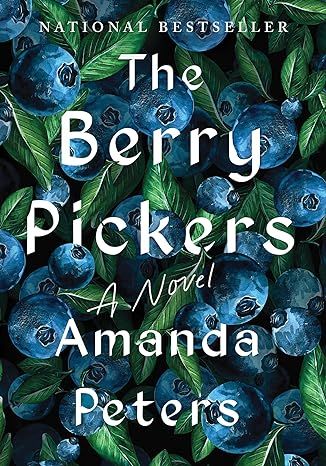
The Berry Pickers: A Novel
4.5
-
14,209
$14.99

Elon Musk
4.7
-
15,272
$16.99
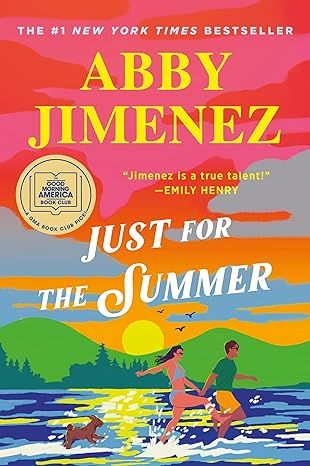
Just for the Summer
4.6
-
19,524
$11.99
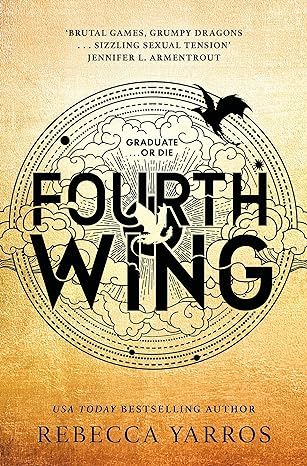
Fourth Wing (International Edition)
4.8
-
206,495
$7.95
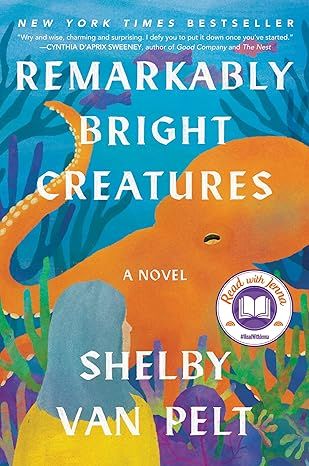
Remarkably Bright Creatures: A Read with Jenna Pick
4.6
-
65,556
$15.80
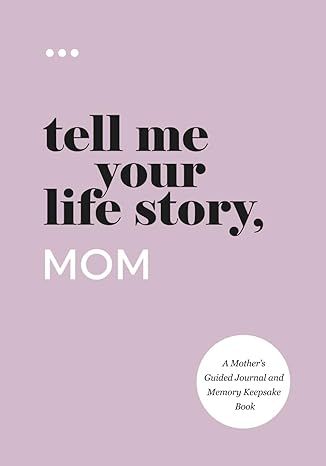
Tell Me Your Life Story, Mom: A Mother’s Guided Journal and Memory Keepsake Book (Tell Me Your Life Story® Series Books)
4.7
-
5,107
$11.24
